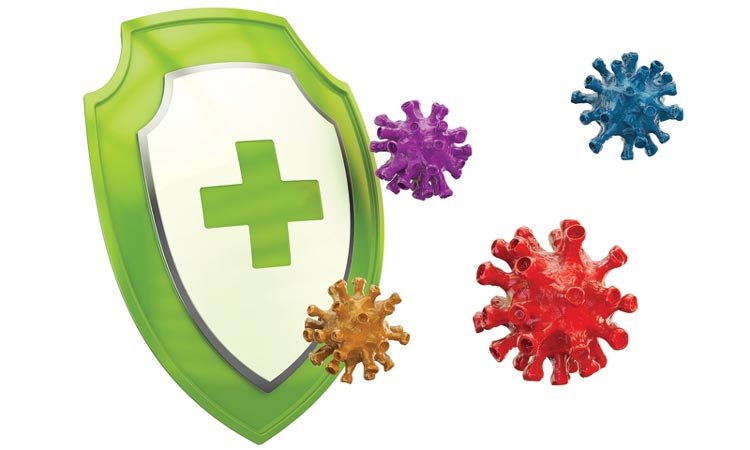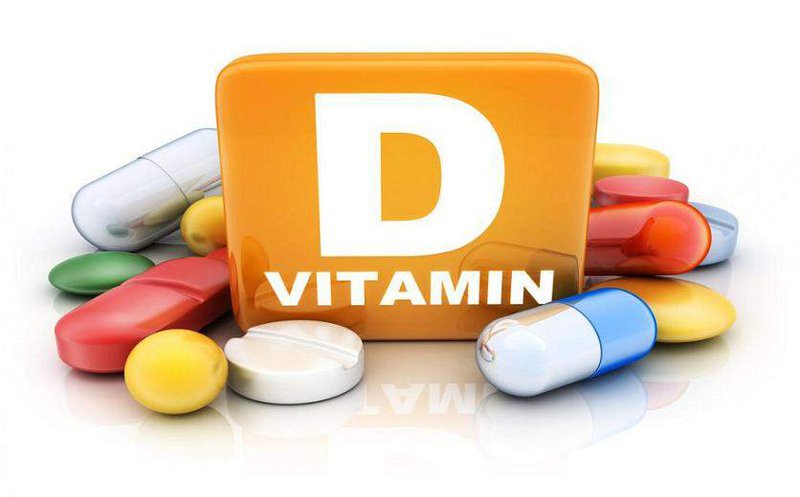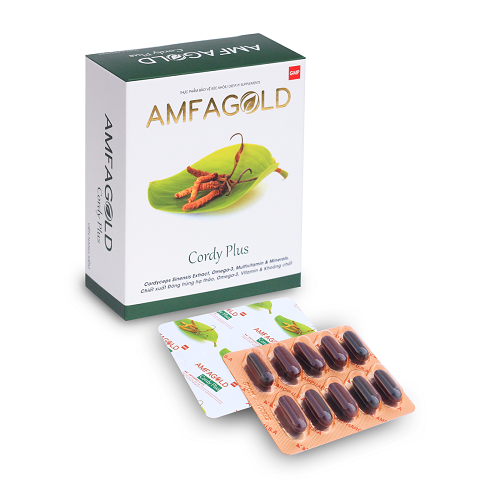The Four Good Supplements to Boost Your Immune System
Your immune system consists of a complex collection of cells, processes, and chemicals that constantly defends your body against invading pathogens, including viruses, toxins, and bacteria. Keeping your immune system healthy year-round is key to preventing infection and disease. Making healthy lifestyle choices by consuming nutritious foods and getting enough sleep and exercise are the most important ways to bolster your immune system.(1)

Healthy Immune System Helps Prevent Infection And Disease
Research has shown that supplementing with certain vitamins, minerals, herbs, and other substances can improve immune response and potentially protect against illness. Here are four supplements that are known for their immune-boosting potential.
Medicinal mushrooms
Medicinal mushrooms have been used since ancient times to prevent and treat infection and disease. Many types of medicinal mushrooms have been studied for their immune-boosting potential.
Cordyceps, lion’s mane, maitake, shitake, reishi, and turkey tail are all types that have been shown to benefit immune health (2).
For example, a study in mice with tuberculosis, a serious bacterial disease, found that treatment with cordyceps significantly reduced bacterial load in the lungs, enhanced immune response, and reduced inflammation, compared with a placebo group (3).
In a randomized, 8-week study in 79 adults, supplementing with 1.7 grams of cordyceps mycelium culture extract led to a significant 38% increase in the activity of natural killer (NK) cells, a type of white blood cell that protects against infection (4).

Cordyceps is very good for immune system
Zinc
Supplementing with zinc may help protect against respiratory tract infections and reduce the duration of these infections. Zinc is needed for immune cell development and communication and plays an important role in inflammatory response.
A deficiency in this nutrient significantly affects your immune system’s ability to function properly, resulting in an increased risk of infection and disease, including pneumonia (5,6).
Zinc deficiency affects around 2 billion people worldwide and is very common in older adults. In fact, up to 30% of older adults are considered deficient in this nutrient (7).
Numerous studies reveal that zinc supplements may protect against respiratory tract infections like the common cold and may be beneficial for those who are already sick. In a 2019 study in 64 hospitalized children with acute lower respiratory tract infections (ALRIs), taking 30 mg of zinc per day decreased the total duration of infection and the duration of the hospital stay by an average of 2 days, compared with a placebo group (8).

Zinc is needed for immune cell development
B complex vitamins
B vitamins, including B12 and B6, are important for healthy immune response. Yet, many adults are deficient in them, which may negatively affect immune health (9).

B vitamin deficiency affects the immune system
Vitamin D
Vitamin D is a fat-soluble nutrient essential to the health and functioning of your immune system. Vitamin D enhances the pathogen-fighting effects of monocytes and macrophages — white blood cells that are important parts of your immune defense — and decreases inflammation, which helps promote immune response (10).
Many people are deficient in this important vitamin, which may negatively affect immune function. In fact, low vitamin D levels are associated with an increased risk of upper respiratory tract infections, including influenza and allergic asthma (11).
In fact, recent research suggests that taking this vitamin may protect against respiratory tract infections. In a 2019 review of randomized control studies in 11,321 people, supplementing with vitamin D significantly decreased the risk of respiratory infections in people deficient in this vitamin and lowered infection risk in those with adequate vitamin D levels (12).
Other studies note that vitamin D supplements may improve response to antiviral treatments in people with certain infections, including hepatitis C and HIV (13,14,15).

Vitamin D helps boost immune response
Conclusion
Maintaining a balanced diet, getting enough sleep, engaging in regular physical activity, and not smoking are some of the most important ways to help keep your immune system healthy and reduce your chances of infection and disease.
Besides, many supplements on the market may help improve immune health. Medicinal mushrooms including Cordyceps, Zinc, B complex vitamin and vitamin D are some of the substances that have been researched for their immune-enhancing potential and should be added to your daily diet to help protect your health.

AMFAGOLD® CORDY PLUS Cordyceps Extract
References:
Jillian Kubala, MS, RD. The 15 Best Supplements to Boost Your Immune System Right Now.
https://www.healthline.com/nutrition/immune-boosting-supplements
Ana B. Barros et al. A safety assessment of Coriolus versicolor biomass as a food supplement. Food Nutr Res. 2016
D.G. Li and Z.X. Ren. Cordyceps sinensis promotes immune regulation and enhances bacteriostatic activity of PA-824 via IL-10 in Mycobacterium tuberculosis disease. Braz J Med Biol Res. 2017
Su-Jin Jung et al. Immunomodulatory effects of a mycelium extract of Cordyceps (Paecilomyces hepiali; CBG-CS-2): a randomized and double-blind clinical trial. BMC Complement Altern Med. 2019
ROBERT B. SAPER, MD, MPH and REBECCA RASH, MA. Zinc: An Essential Micronutrient. Am Fam Physician. 2009 May 1; 79(9): 768.
Junaidah B Barnett, Davidson H Hamer, and Simin N Meydanicorresponding author. Low zinc status: a new risk factor for pneumonia in the elderly. Nutr Rev. 2010 Jan; 68(1): 30–37.
Inga Wessels, Martina Maywald, and Lothar Rink. Zinc as a Gatekeeper of Immune Function. Nutrients. 2017 Dec; 9(12): 1286.
Sanguansak Rerksuppaphol and Lakkana Rerksuppaphol. A randomized controlled trial of zinc supplementation in the treatment of acute respiratory tract infection in Thai children. Pediatr Rep. 2019 May 23; 11(2): 7954.
Silvia Maggini, Adeline Pierre and Philip C. Calder. Immune Function and Micronutrient Requirements Change over the Life Course. Nutrients. 2018 Oct
Mayte Medrano et al. Vitamin D: Effect on Haematopoiesis and Immune System and Clinical Applications. Int J Mol Sci. 2018 Sep; 19(9): 2663
Barbara Prietl et al. Vitamin D and Immune Function. Nutrients. 2013 Jul; 5(7): 2502–2521.
Adrian R Martinea et al. Vitamin D supplementation to prevent acute respiratory infections: individual participant data meta-analysis. Health Technol Assess. 2019 Jan;23(2):1-44.
Davide Bitetto et al. Vitamin D supplementation improves response to antiviral treatment for recurrent hepatitis C. Transpl Int. 2011 Jan;24(1):43-50.
S Yokoyama et al. Effect of vitamin D supplementation on pegylated interferon/ribavirin therapy for chronic hepatitis C genotype 1b: a randomized controlled trial. J Viral Hepat. 2014 May.
Lara Coelho et al. Vitamin D3 supplementation in HIV infection: effectiveness and associations with antiretroviral therapy. Nutr J. 2015; 14: 81.
- 1. Energize and focus your new year with Ginseng and Ginkgo Biloba
- 2. CAN PEOPLE WITH HYPERTENSION USE CORDYCEPS?
- 3. COMMON HABITS CAUSES CEREBRAL ISCHEMIA
- 4. TIPS FOR STAYING HEALTHY IN THE AUTUMN
- 5. THE EXPERT’S SHARING: THE KEY TO START A NEW DAY FULL OF ENERGY
- 6. GINSENG – “SPECIAL” HERBAL MEDICINE FOR FATIGUE PEOPLE

